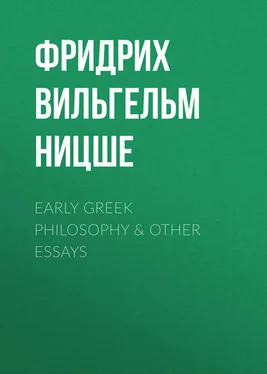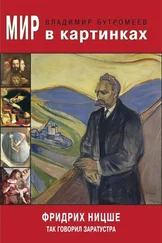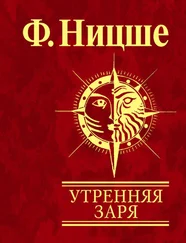Фридрих Ницше - Early Greek Philosophy & Other Essays
Здесь есть возможность читать онлайн «Фридрих Ницше - Early Greek Philosophy & Other Essays» — ознакомительный отрывок электронной книги совершенно бесплатно, а после прочтения отрывка купить полную версию. В некоторых случаях можно слушать аудио, скачать через торрент в формате fb2 и присутствует краткое содержание. Жанр: Философия, literature_19, foreign_antique, foreign_prose, на английском языке. Описание произведения, (предисловие) а так же отзывы посетителей доступны на портале библиотеки ЛибКат.
- Название:Early Greek Philosophy & Other Essays
- Автор:
- Жанр:
- Год:неизвестен
- ISBN:нет данных
- Рейтинг книги:3 / 5. Голосов: 1
-
Избранное:Добавить в избранное
- Отзывы:
-
Ваша оценка:
- 60
- 1
- 2
- 3
- 4
- 5
Early Greek Philosophy & Other Essays: краткое содержание, описание и аннотация
Предлагаем к чтению аннотацию, описание, краткое содержание или предисловие (зависит от того, что написал сам автор книги «Early Greek Philosophy & Other Essays»). Если вы не нашли необходимую информацию о книге — напишите в комментариях, мы постараемся отыскать её.
Early Greek Philosophy & Other Essays — читать онлайн ознакомительный отрывок
Ниже представлен текст книги, разбитый по страницам. Система сохранения места последней прочитанной страницы, позволяет с удобством читать онлайн бесплатно книгу «Early Greek Philosophy & Other Essays», без необходимости каждый раз заново искать на чём Вы остановились. Поставьте закладку, и сможете в любой момент перейти на страницу, на которой закончили чтение.
Интервал:
Закладка:
He who contemplates war and its uniformed possibility, the soldier's profession, with respect to the hitherto described nature of the State, must arrive at the conviction, that through war and in the profession of arms is placed before our eyes an image, or even perhaps the prototype of the State. Here we see as the most general effect of the war-tendency an immediate decomposition and division of the chaotic mass into military castes, out of which rises, pyramid-shaped, on an exceedingly broad base of slaves the edifice of the "martial society." The unconscious purpose of the whole movement constrains every individual under its yoke, and produces also in heterogeneous natures as it were a chemical transformation of their qualities until they are brought into affinity with that purpose. In the highest castes one perceives already a little more of what in this internal process is involved at the bottom, namely the creation of the military genius – with whom we have become acquainted as the original founder of states. In the case of many States, as, for example, in the Lycurgian constitution of Sparta, one can distinctly perceive the impress of that fundamental idea of the State, that of the creation of the military genius. If we now imagine the military primal State in its greatest activity, at its proper "labour," and if we fix our glance upon the whole technique of war, we cannot avoid correcting our notions picked up from everywhere, as to the "dignity of man" and the "dignity of labour" by the question, whether the idea of dignity is applicable also to that labour, which has as its purpose the destruction of the "dignified" man, as well as to the man who is entrusted with that "dignified labour," or whether in this warlike task of the State those mutually contradictory ideas do not neutralise one another. I should like to think the warlike man to be a means of the military genius and his labour again only a tool in the hands of that same genius; and not to him, as absolute man and non-genius, but to him as a means of the genius – whose pleasure also can be to choose his tool's destruction as a mere pawn sacrificed on the strategist's chessboard – is due a degree of dignity, of that dignity namely, to have been deemed worthy of being a means of the genius. But what is shown here in a single instance is valid in the most general sense; every human being, with his total activity, only has dignity in so far as he is a tool of the genius, consciously or unconsciously; from this we may immediately deduce the ethical conclusion, that "man in himself," the absolute man possesses neither dignity, nor rights, nor duties; only as a wholly determined being serving unconscious purposes can man excuse his existence.
Plato's perfect State is according to these considerations certainly something still greater than even the warm-blooded among his admirers believe, not to mention the smiling mien of superiority with which our "historically" educated refuse such a fruit of antiquity. The proper aim of the State, the Olympian existence and ever-renewed procreation and preparation of the genius, – compared with which all other things are only tools, expedients and factors towards realisation – is here discovered with a poetic intuition and painted with firmness. Plato saw through the awfully devastated Herma of the then-existing State-life and perceived even then something divine in its interior. He believed that one might be able to take out this divine image and that the grim and barbarically distorted outside and shell did not belong to the essence of the State: the whole fervour and sublimity of his political passion threw itself upon this belief, upon that desire – and in the flames of this fire he perished. That in his perfect State he did not place at the head the genius in its general meaning, but only the genius of wisdom and of knowledge, that he altogether excluded the inspired artist from his State, that was a rigid consequence of the Socratian judgment on art, which Plato, struggling against himself, had made his own. This more external, almost incidental gap must not prevent our recognising in the total conception of the Platonic State the wonderfully great hieroglyph of a profound and eternally to be interpreted esoteric doctrine of the connection between State and Genius. What we believed we could divine of this cryptograph we have said in this preface.
THE GREEK WOMAN
Just as Plato from disguises and obscurities brought to light the innermost purpose of the State, so also he conceived the chief cause of the position of the Hellenic Woman with regard to the State; in both cases he saw in what existed around him the image of the ideas manifested to him, and of these ideas of course the actual was only a hazy picture and phantasmagoria. He who according to the usual custom considers the position of the Hellenic Woman to be altogether unworthy and repugnant to humanity, must also turn with this reproach against the Platonic conception of this position; for, as it were, the existing forms were only precisely set forth in this latter conception. Here therefore our question repeats itself: should not the nature and the position of the Hellenic Woman have a necessary relation to the goals of the Hellenic Will?
Of course there is one side of the Platonic conception of woman, which stands in abrupt contrast with Hellenic custom: Plato gives to woman a full share in the rights, knowledge and duties of man, and considers woman only as the weaker sex, in that she will not achieve remarkable success in all things, without however disputing this sex's title to all those things. We must not attach more value to; this strange notion than to the expulsion of the artist out of the ideal State; these are side-lines daringly mis-drawn, aberrations as it were of the hand otherwise so sure and of the so calmly contemplating eye which at times under the influence of the deceased master becomes dim and dejected; in this mood he exaggerates the master's paradoxes and in the abundance of his love gives himself satisfaction by very eccentrically intensifying the latter's doctrines even to foolhardiness.
The most significant word however that Plato as a Greek could say on the relation of woman to the State, was that so objectionable demand, that in the perfect State, the Family was to cease. At present let us take no account of his abolishing even marriage, in order to carry out this demand fully, and of his substituting solemn nuptials arranged by order of the State, between the bravest men and the noblest women, for the attainment of beautiful offspring. In that principal proposition however he has indicated most distinctly – indeed too distinctly, offensively distinctly – an important preparatory step of the Hellenic Will towards the procreation of the genius. But in the customs of the Hellenic people the claim of the family on man and child was extremely limited: the man lived in the State, the child grew up for the State and was guided by the hand of the State. The Greek Will took care that the need of culture could not be satisfied in the seclusion of a small circle. From the State the individual has to receive everything in order to return everything to the State. Woman accordingly means to the State, what sleep does to man. In her nature lies the healing power, which replaces that which has been used up, the beneficial rest in which everything immoderate confines itself, the eternal Same, by which the excessive and the surplus regulate themselves. In her the future generation dreams. Woman is more closely related to Nature than man and in all her essentials she remains ever herself. Culture is with her always something external, a something which does not touch the kernel that is eternally faithful to Nature, therefore the culture of woman might well appear to the Athenian as something indifferent, yea – if one only wanted to conjure it up in one's mind, as something ridiculous. He who at once feels himself compelled from that to infer the position of women among the Greeks as unworthy and all too cruel, should not indeed take as his criterion the "culture" of modern woman and her claims, against which it is sufficient just to point out the Olympian women together with Penelope, Antigone, Elektra. Of course it is true that these are ideal figures, but who would be able to create such ideals out of the present world? – Further indeed is to be considered what sons these women have borne, and what women they must have been to have given birth to such sons! The Hellenic woman as mother had to live in obscurity, because the political instinct together with its highest aim demanded it. She had to vegetate like a plant, in the narrow circle, as a symbol of the Epicurean wisdom λάθε βυώσας. Again, in more recent times, with the complete disintegration of the principle of the State, she had to step in as helper; the family as a makeshift for the State is her work; and in this sense the artistic aim of the State had to abase itself to the level of a domestic art. Thereby it has been brought about, that the passion of love, as the one realm wholly accessible to women, regulates our art to the very core. Similarly, home-education considers itself so to speak as the only natural one and suffers State-education only as a questionable infringement upon the right of home-education: all this is right as far as the modern State only is concerned. – With that the nature of woman withal remains unaltered, but her power is, according to the position which the State takes up with regard to women, a different one. Women have indeed really the power to make good to a certain extent the deficiencies of the State – ever faithful to their nature, which I have compared to sleep. In Greek antiquity they held that position, which the most supreme will of the State assigned to them: for that reason they have been glorified as never since. The goddesses of Greek mythology are their images: the Pythia and the Sibyl, as well as the Socratic Diotima are the priestesses out of whom divine wisdom speaks. Now one understands why the proud resignation of the Spartan woman at the news of her son's death in battle can be no fable. Woman in relation to the State felt herself in her proper position, therefore she had more dignity than woman has ever had since. Plato who through abolishing family and marriage still intensifies the position of woman, feels now so much reverence towards them, that oddly enough he is misled by a subsequent statement of their equality with man, to abolish again the order of rank which is their due: the highest triumph of the woman of antiquity, to have seduced even the wisest!
Читать дальшеИнтервал:
Закладка:
Похожие книги на «Early Greek Philosophy & Other Essays»
Представляем Вашему вниманию похожие книги на «Early Greek Philosophy & Other Essays» списком для выбора. Мы отобрали схожую по названию и смыслу литературу в надежде предоставить читателям больше вариантов отыскать новые, интересные, ещё непрочитанные произведения.
Обсуждение, отзывы о книге «Early Greek Philosophy & Other Essays» и просто собственные мнения читателей. Оставьте ваши комментарии, напишите, что Вы думаете о произведении, его смысле или главных героях. Укажите что конкретно понравилось, а что нет, и почему Вы так считаете.


![Фридрих Ницше - Песни Заратустры [сборник]](/books/28216/fridrih-nicshe-pesni-zaratustry-sbornik-thumb.webp)








